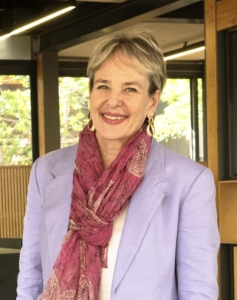16 July 2024
We are pleased to announce that Dr Heide Hackmann joined the University of Stellenbosch on 1 July 2024 to take up a new Chair in Science Futures in the the Centre for Research on Evaluation, Science and Technology (CREST). Dr Hackmann brings to the University 25 years of experience and networks in international science and technology policy, global science strategy and systems development, as well as science advice and diplomacy. She holds an MPhil in Contemporary Social Theory from the University of Cambridge in the UK and a PhD in Science and Technology Studies from the University of Twente in the Netherlands. Before joining CREST she served as Director of Future Africa at the University of Pretoria (2022-2024); as the founding CEO of the International Science Council in Paris (2018-2022); and as Executive Director of the Council’s two predecessor organizations, the International Council for Science (2015-2018) and the International Social Science Council (2007-2015). Dr Hackmann is a Fellow of the International Science Council, continues to serve as an advisor to the United Nations and remains active on the boards of numerous international scientific organisations and initiatives.
As Chair in Science Futures Dr Hackmann will seek to develop a cutting-edge programme of work on advancing science as a global good, with particular relevance to both the South African and broader African context. Activities will centre around research, capacity development, policy engagement and network building related to several broad lines of work including:
- Global science policy trends, including the development and implications of the global open science movement and related implementation strategies, trends in international scientific collaboration and the geopolitics of science.
- Transformative science for societal transformations, focusing on new and emerging approaches to unlocking and evaluating the potential of research to inform and support tractable pathways to societal transformations.
- Innovation at the science-policy-practice interface, bringing thought leadership to processes of pooling collective intelligence across existing science-policy-practice mechanisms and exploring new opportunities for science diplomacy and transdisciplinary science advisory systems.
- Science systems’ dynamics and developments, focusing on evolving dynamics and development imperatives in national and regional science systems and science funding regimes, system changes required to enable transformative science, and growing the next generation of leaders in the broader science ecosystem.



